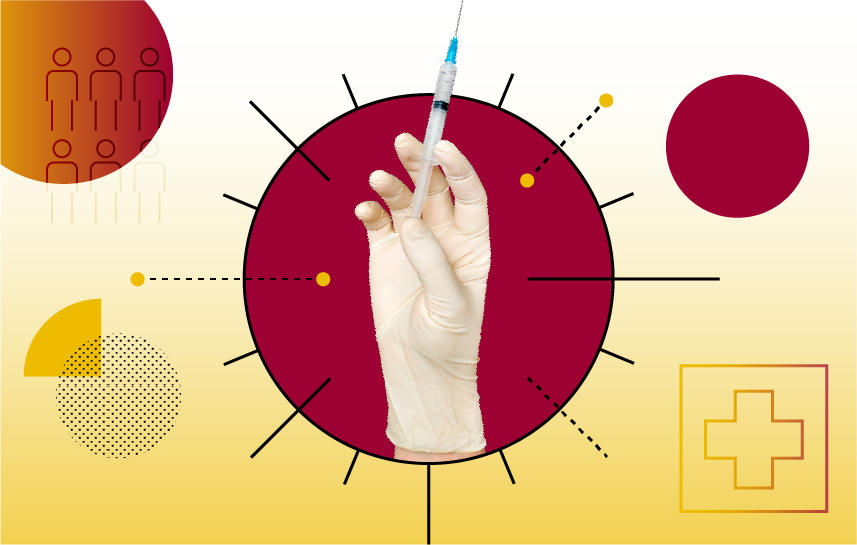Undervalued by 60%, This Growth Stock Is a Buy for the Long Term
The market is underestimating this company’s technology and growth potential.

Moderna MRNA is best known for its COVID-19 vaccine, but there’s more to its story. While we think Moderna is still in the process of building a moat around its mRNA technology, we also think the market underappreciates the company’s significant long-term potential in respiratory diseases, the broader infectious disease space, and cancer and rare diseases. Moderna is among our analysts’ 33 undervalued stocks for the third quarter. It also appears on our list of five most undervalued defensive stocks.
In a record-breaking span of just 11 months, Moderna created, developed, manufactured, and got regulatory authorization for mRNA-1273, a two-dose COVID-19 vaccine that is one of the first two mRNA vaccines ever authorized (alongside Pfizer/BioNTech’s BNT162b2). The pandemic accelerated Moderna’s evolution into a commercial-stage biotech, and we expect the company’s ramp-up in manufacturing and clinical know-how will pave the way for faster timelines for additional programs. Moderna’s mRNA platform, involving rapid design and similar manufacturing across programs, allows the company to pursue multiple programs in parallel. Moderna retains full rights to most of its programs, although partnerships with Merck and Vertex help support its efforts in oncology and cystic fibrosis. Moderna’s most advanced program outside COVID-19 is for cytomegalovirus, a leading cause of birth defects, but several other vaccines are advancing into late-stage trials.
Key Morningstar Metrics for Moderna
- Fair Value Estimate: $266
- Star Rating: 5 Stars
- Economic Moat Rating: None
- Uncertainty Rating: Very High
Economic Moat Rating
The stellar safety and efficacy profile of Moderna’s COVID-19 vaccine has rapidly validated the company’s mRNA technology, and we expect returns on invested capital to remain above our 9% assumed cost of capital beginning in 2025. However, we see threats of major value destruction that preclude us from awarding a narrow economic moat rating to the company. Moderna has already served a critical role in vaccinating millions of individuals during the pandemic and has several potential first-in-class vaccines in testing that could serve significant unmet needs. We think it has the funding and the technological capabilities to bring most of these programs to market. However, we see uncertainty around its defenses against other novel mRNA vaccine market entrants. We think Moderna is still building a moat, as we expect multiple new competitors will be entering the vaccine market during the endemic phase.
Read more about Moderna’s moat rating.
Fair Value Estimate for Moderna Stock
Our fair value estimate of $266 per share takes into account positive phase 2 data for Merck and Moderna’s personalized cancer vaccine, mRNA-4157. We assume a 60% probability of approval for this program and expect Moderna could record more than $2.5 billion in sales from it by 2032. We think mRNA-1273, the company’s authorized COVID-19 vaccine, should generate roughly $7.5 billion in 2023 and $5 billion in annual sales beyond, thanks to recurring boosters in high-risk populations. We expect that Moderna could launch its next prophylactic infectious disease vaccines for respiratory syncytial virus and influenza in 2024 (70% probability), with additional launches over the next several years supporting $10 billion in annual non-COVID infectious disease vaccine sales by 2032. In oncology, beyond mRNA-4157, we assign 10%-30% probabilities of approval to the company’s programs. We include nearly $1.5 billion in annual sales from rare-disease therapeutics by 2032 (20%-35% probabilities of approval). Overall, this results in more than $21 billion in total probability-adjusted annual revenue by 2032. We expect operating margins will easily surpass 40% by 2030 and model long-term margins approaching 50%, even with continued strong investment in research and development.
Read more about Moderna’s fair value estimate.
Risk and Uncertainty
There is the potential for rapid changes in the competitive landscape and in the COVID-19 virus itself. Beyond COVID-19, Moderna’s technology is still largely unproved, and competing technologies could prove safer and more effective. We see access to basic services (tied to potential U.S. policy reform on drug pricing, the potential waiving of intellectual property rights to expand access to vaccines, and vaccine hesitancy) as the biggest potential environmental, social, and governance risk that Moderna needs to manage. Safety issues could also be a source of litigation costs for Moderna in the long run. But millions of individuals have received Moderna’s COVID-19 vaccine with no serious side effects, so we assume less than a 25% probability of significant litigation occurring, and we don’t include potential future litigation costs in our valuation model.
Read more about Moderna’s risk and uncertainty.
Moderna Bulls Say
- The stellar efficacy and safety profile of Moderna’s COVID-19 vaccine offered rapid validation of the company’s mRNA technology.
- Its mRNA technology could allow the company to compete in a wide range of therapeutic areas, ranging from other prophylactic vaccines (like influenza and other viruses) to enzyme replacement (various rare diseases) to cancer.
- Moderna’s cash infusion from COVID-19 vaccine sales, as well as newly established large-scale manufacturing facilities, positions the company to accelerate timelines for new pipeline programs.
Moderna Bears Say
- Moderna’s Alexion partnership was terminated in 2017 after failure to find a safe but effective dose for the lead program, which could foreshadow difficulty finding a therapeutic window beyond low-dose vaccine programs.
- The long-term efficacy of COVID-19 vaccines or evolution to a less threatening variant could bring a sudden stop to Moderna’s revenue stream.
- Vaccine pricing has been low during the pandemic, and the spotlight on drug pricing could make it difficult for Moderna to raise prices following the pandemic.
The author or authors do not own shares in any securities mentioned in this article. Find out about Morningstar’s editorial policies.

/author-service-images-prod-us-east-1.publishing.aws.arc.pub/morningstar/558ccc7b-2d37-4a8c-babf-feca8e10da32.jpg)
/cloudfront-us-east-1.images.arcpublishing.com/morningstar/LE5DFBLC5VACTMC7JWTRIYVU5M.jpg)
/cloudfront-us-east-1.images.arcpublishing.com/morningstar/PJQ2TFVCOFACVODYK7FJ2Q3J2U.png)
/cloudfront-us-east-1.images.arcpublishing.com/morningstar/KPHQX3TJC5FC7OEC653JZXLIVY.jpg)
:quality(80)/author-service-images-prod-us-east-1.publishing.aws.arc.pub/morningstar/558ccc7b-2d37-4a8c-babf-feca8e10da32.jpg)